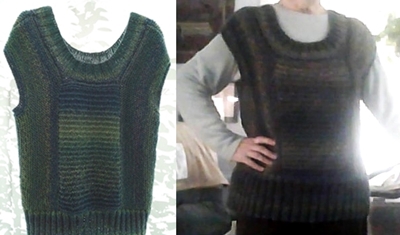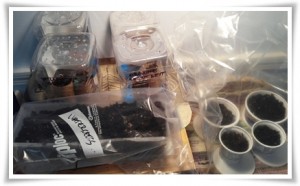According to Natalie Goldberg, writer and teacher, the order should be “Sit, Walk, Write,” but, as is my nature, I fudge things to fit my nature. Following directions is not one of my strong suits. I improvise.
When the temperature hit 50 degrees today, I went out for a stroll (again, my nature) under a clear and sunny sky. The cool breeze brought the non-scent. of a waning winter. There is still snow on the ground. Vague puddles cross my path.
I can barely hear my footfalls, although that can be more the effect of my diminished hearing rather than the soft tread of my measured heel-to-toe pace. I doesn’t matter.
Cracks in the asphalt form telling mandalas, and I wish I had brought my camera to capture the symmetries of these unexpected partnerships between man and nature.
A young woman jogs past me and turns up a hill that I always find too strenuous for my strolls. I am not going anywhere. Have no place I have to be. It is that time of my life when strolling is the way to go. (Unless, of course the Amtrak Writers Residency project picks me to “sit, ride, write.”)
The same young woman passes me again, this time going the other way. I wait for her to pass me yet again, because three is a magical number, but she doesn’t. Is there meaning in that?
http://youtu.be/aU4pyiB-kq0
A young boy, about seven years old, walks past me on the other side of the street. He is pushing what looks like a doll’s carriage; it’s too small for a baby. When he walks toward me later, coming the other way (it seems like everyone is coming and going, but I just keep going), I stop and look through the mesh into the stroller. It’s a big orange cat. He says the cat’s name is Oliver. I look down at the logo on the stroller. It’s a pet carrier. Why not.
When I sit, it’s on the sunny front steps with my daughter and grandson. We sip our teas and chat. I need that kind of company/togetherness, and they provide it. I feel lucky.
In a moment of silence, I wonder how my son’s goats are doing. It is the year of the goat. And of goat therapy. Sometimes magic happens.
The clouds finally drift in from the west, and the breeze picks up.
Now it’s time to write. And I am.
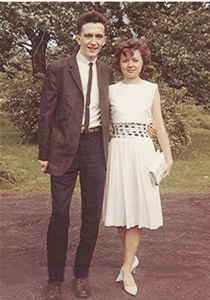 Six years ago today, my friend and once-husband died of lung cancer. This is the only existing photo of the day we eloped in 1962.
Six years ago today, my friend and once-husband died of lung cancer. This is the only existing photo of the day we eloped in 1962.
 I found a cap-sleeve cropped sweater pattern that was knit from side to side and so I decided to follow the pattern, since it was exactly what I wanted. I made a swatch to check the gauge. I followed the directions.
I found a cap-sleeve cropped sweater pattern that was knit from side to side and so I decided to follow the pattern, since it was exactly what I wanted. I made a swatch to check the gauge. I followed the directions.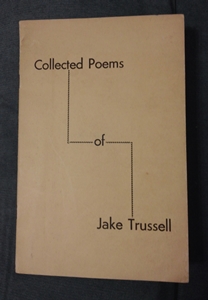 Even the information about him in the last available copy of his chapbook that I just bought for $10 doesn’t tell me anything about how I might have come to know anything about him more than a half-century ago.
Even the information about him in the last available copy of his chapbook that I just bought for $10 doesn’t tell me anything about how I might have come to know anything about him more than a half-century ago.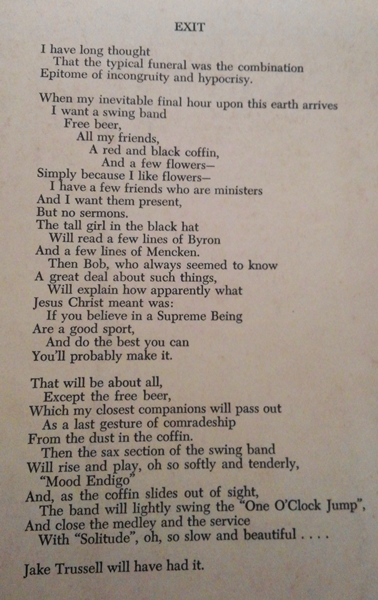
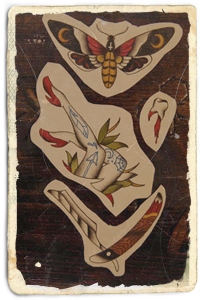
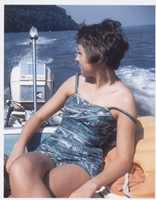 when I am old
when I am old